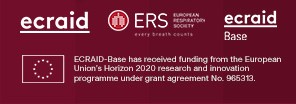Speakers: Marc Bonten (Utrecht, Netherlands), Scott Berry (Austin, USA), Lennie Derde (Utrecht, Netherlands), Thomas Jaki (Regensburg, Germany), Sarah Walker (London, UK), Jean-Francois Timsit (Paris, France), Julia Bielicki (London, UK), Chris Jennison (Bath, UK), Antoni Torres (Barcelona, Spain), Sofia Villar (Cambridge, UK), Lorenzo Guglielmetti (Paris, France), Carole Mitnick (Boston, USA), Pavel Mozgunov (Cambridge, UK), Rieke van der Graaf (Utrecht, Netherlands), Valentijn Schweitzer (Utrecht, Netherlands), Thomas Burnett (Bath, UK), Mo Yin (Singapore), Matteo Cellamare (Washington, USA), Bern-Thomas Nyang'wa (London, UK), Marlieke de Kraker (Geneva, Switzerland), Holly Jackson (Geneva, Switzerland).
Fees: Free
Summary
Infectious diseases are an important global concern, but traditional randomised controlled trials lag behind what is needed in terms of rapid development of diagnostics, vaccines, and treatments. In particular, fixed trial designs cannot adapt to rapidly evolving research findings and treatments, hindering their utility in the context of an emerging pathogen.
In contrast, adaptive trial designs offer a compelling alternative where trial parameters can be modified during the trial, based on pre-specified rules, to respond to emerging research findings. The European Clinical Research Alliance on Infectious Diseases (Ecraid) has embraced adaptive trial designs as a tool for facilitating faster, more efficient, and higher-quality clinical research. The foundation, which coordinates Europe's largest 'warm-base' clinical research network for infectious diseases, is involved in various trials adopting some form of adaptive design. Such as the ground-breaking trials REMAP-CAP and RECOVERY, both of which have achieved unmatched speed and efficiency thanks to their adaptive platform design.
'Adaptive clinical trial designs' is a very broad area of research, which encompasses many different designs, and each design can be implemented using several different techniques. These training modules will introduce the different types of adaptive designs and explain their advantages and limitations. Experts in the field will also describe the challenges of implementing these trials in practice. This series offers a unique opportunity to learn from world-leading experts about all the different aspects of adaptive clinical trial designs in the domain of infectious diseases, featuring amongst others Lennie Derde, Thomas Jaki, and Marc Bonten. It will be a free modular series, which you can follow at your own convenience. Everyone interested in the future of clinical development in infectious diseases should follow these training modules!
Modules and timeline:
1. Module 1: General introduction to Ecraid and adaptive trial designs - available 31.01.2024
2. Module 2: Seamless trial designs & endpoint selection - available 29.03.2024
3. Module 3: Group sequential designs and sample size re-estimation - available on 31.05.2024
4. Module 4: Response adaptive randomisation and covariate-adjusted response adaptive randomisation designs - available 31.07.2024
5. Module 5: Platform trials and the personalised randomised controlled trial - available on 30.09.2024
6. Module 6: Ethical and logistical concerns for adaptive designs, and CME test - available on 30.11.2024
Target audience
Those with an interest, or experience, in clinical research or clinical trials with basic statistical knowledge, including hypothesis testing and methods for traditional randomised controlled trials.
Format
Six online modules, averaging 2 hours each, every two months (January 2024-November 2024).
Each module will include lectures about the theory of each adaptive trial design and an example of their use in practice.
Opportunities to dig deeper and test your knowledge through Q&A and asynchronous interaction with experts and fellow participants through an online forum.
Learning outcomes
After following these training modules, participants should be able to:
1. Describe the most relevant types of adaptive trial designs.
2. Explain the advantages and disadvantages of different types of adaptive trial designs.
3. Explain when to use specific types of adaptive trial designs.
4. Appropriately interpret published findings from adaptive trial designs
CME Certificate
An online CME exam will be made available at the end of the series. Participants will be granted a CME certificate upon successful completion of the exam.
Diseases/methods:
• Respiratory diseases
• Respiratory infections
• Adaptive clinical trial designs
Funding
This training initiative is supported by the ECRAID-Base project which has received funding from the European Union's Horizon 2020 research and innovation programme under Grant Agreement No. 965313.

DO NOT EDIT - REDIRECTION
DO NOT EDIT - REDIRECTION

